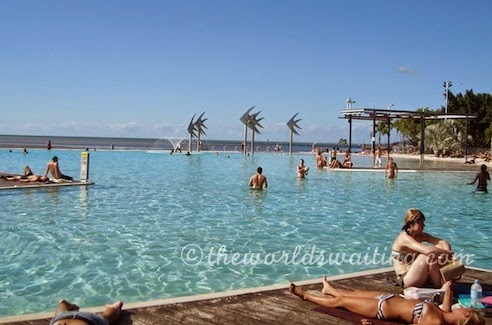
You CAN afford to travel – here is how
Many people want to travel but hold back from accomplishing their travel dreams because they are scared they cannot afford to travel. A bit of careful financial planning goes a long way to allay these fears. Here are my tips for saving as much as you can, as fast as possible. There are that many travel options these days that I really believe where there is a will there is a way. I think the key to travelling in a way you are financially comfortable with is to do a bit of research and then have a realistic think about what you are happy spending. Don’t worry if it is not very much! Holidays in Crete and trips around South East Asia are still possible. The photo above is of me at the top of Mount Sinai in Egypt. I went to Egypt with almost no money and made it work. You can get to your destinations of choice too!
Save before you go
Of course the obvious way to be able to afford a trip is to save money before departing. This can sometimes be easier said than done but even the thriftiest individual can normally find a few ways to save a bit of extra money. Firstly, if you have any savings at all make sure they are in the most supportive account available. By that I mean research the different savings accounts and varying interest rates available. If the amount can increase, even by only a small amount, without you doing anything, why wouldn’t you choose that option? Just make sure you can access the money again when you need it. Some savings accounts insist you do not access the money for a set period of time. If you don’t yet have any savings, open the savings account with the best interest rate anyway. You are planning to need it! Apply for a bank or credit card that does not charge a fee when used overseas. If it is a credit card remember to set up a direct payment to the card from your bank account so that you do not end up in debt overseas.
Spend less
Avoid making small impulse purchases daily. If you were to note each little purchase down for one week you would see how quickly these little spends add up. It is possible to live comfortably without that coffee on the way to work or that bus ticket for a distance you could have walked. There are often health benefits to giving up these things too. Stop making impulse purchases. Try to remember to differentiate between ‘need’ and ‘want’ every single time you purchase something. If you find it hard to resist buying things like magazines, chocolate bars, makeup, fashion jewellery, drinks in the pub or cigarettes, try to avoid encountering the temptation. Do not browse the shops selling things you do not need and take a list to the shops when you need things. Trying to save money does not need to destroy your social life; you just need to do things differently. Try to limit the occasions you meet friends in pubs and bars. Alcohol is really expensive. Catch up at someone’s house, start a regular dvd night, get together to play a sport or go for a walk together instead. There is no better time to get environmentally friendly than when you are trying to save money! Check your home for appliances that are left on standby, but which could be switched off completely. Turn lights off when you leave a room, reduce the temperature on your thermostat a few degrees, allow laundry to dry on a line rather than using a tumble-dryer, take shorter showers and stop the water flow while soaping up and brushing your teeth. Avoid wasting food too. These actions all reduce your energy consumption and add up to a saving over time. Set up direct payments from your bank of any bills you regularly pay. The reliability for companies of direct debits is often rewarded with discounted rates. Another area people spend a lot of money on is accommodation. While accommodation is obviously necessary, the accommodation we choose when we feel settled in a place, the space we want to call ‘home’ and all its comforts, can be an unnecessary expense when cheaper options are available. Options include sharing a room with a mate, living in a flatshare, couchsurfing or, dare I say it, moving in with your parents (assuming they’ll have you!) for a much lesser rate than you would pay renting commercially.
Earn more
If you can increase your earnings perhaps you don’t need to be so thrifty in preparation for your travels. One way is to put your spare time to good use. Be resourceful and use your imagination. We are all different and there are things you probably find super easy to do but which others struggle with. You can help each other. Approach your employer and request more work hours. If you work full-time this may not be possible, but if you work part-time or contracted hours this may be beneficial for your employer as well as you. If you work full-time or your employer is unable to offer you extra work consider getting a second job. Weekend work and evening shifts are often unpopular long term so work involving these hours is often available. Make sure your original employer does not object to you taking a second job though. Some employers can be a bit funny about this. If you have skills that are in demand, or are simply prepared to do things other people have less time or interest in, you may be able to provide a service. Services people require range from household cleaning, ironing, gardening, private language tutoring, website building, pet-feeding and dog-walking to babysitting. If you are a whizz on Ebay offer to sell your friends’ stuff for a mutually agreed percentage. Let friends know you are keen to provide these services and they will probably see it as a great way to help you and may tell their friends about you too. Are you crafty? If you can make things people want, make them and invest a little in an inexpensive market stall once a month to sell them and put your profits towards your travel savings. Have a clear out and sell anything you won’t be taking with you on your travels and things you are not happy to spend money on storage for while you are away (storage fees can be high!) Garage sales are a cheap way to sell stuff you don’t need or want. Other options are online trading sites such as Amazon, Ebay and Craigslist.
How long it will take you to save what you need depends on the amount you can save each week and your ultimate target. Don’t forget that you have fewer regular expenses while travelling so you may not need as much as you initially thought. However it is always wise to be conservative where finances are concerned. This is where careful pre-trip research helps as it means you can set realistic goals.
I hope my tips have helped. Let me know where you are saving to travel to in the comments below. I’d love to know!




